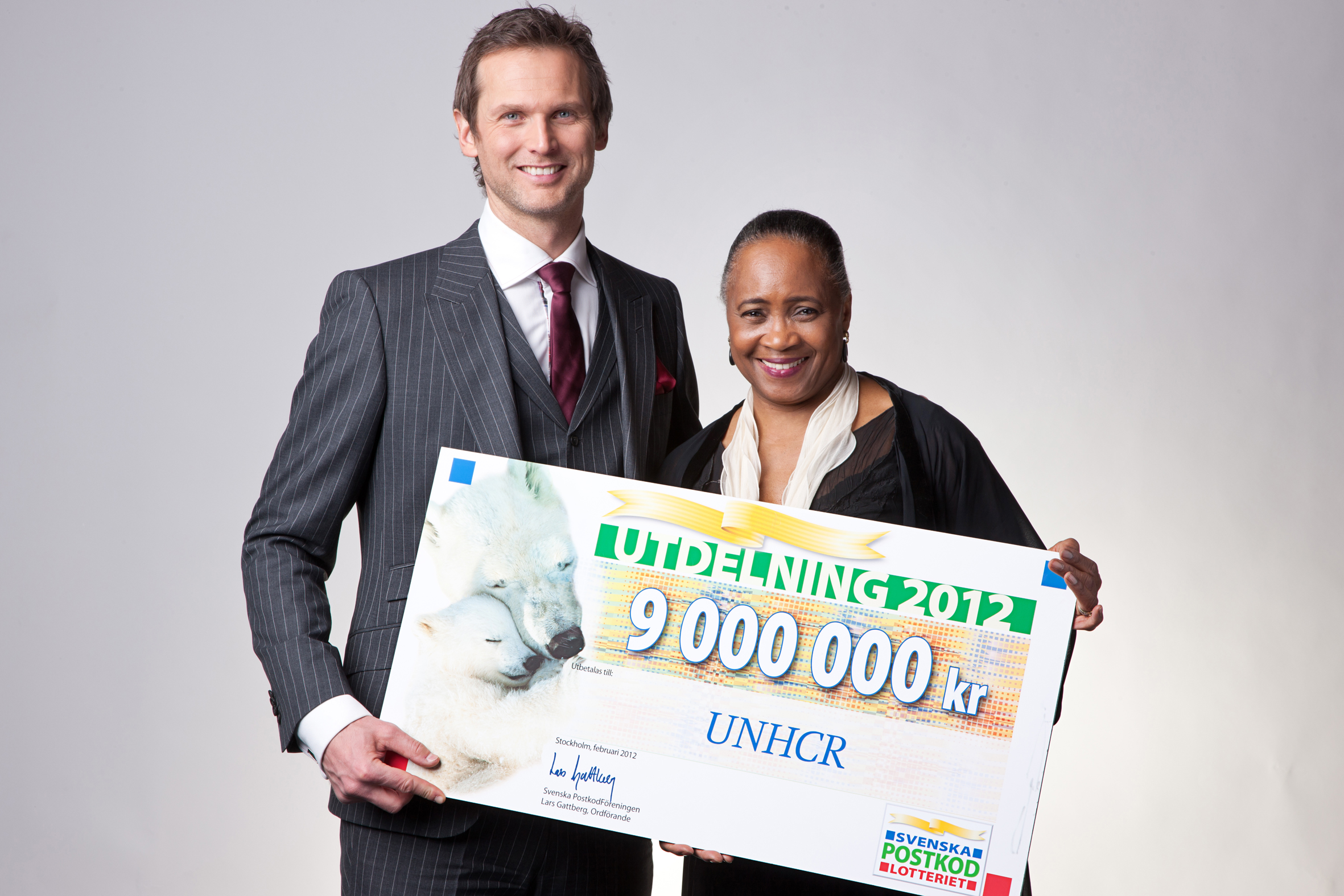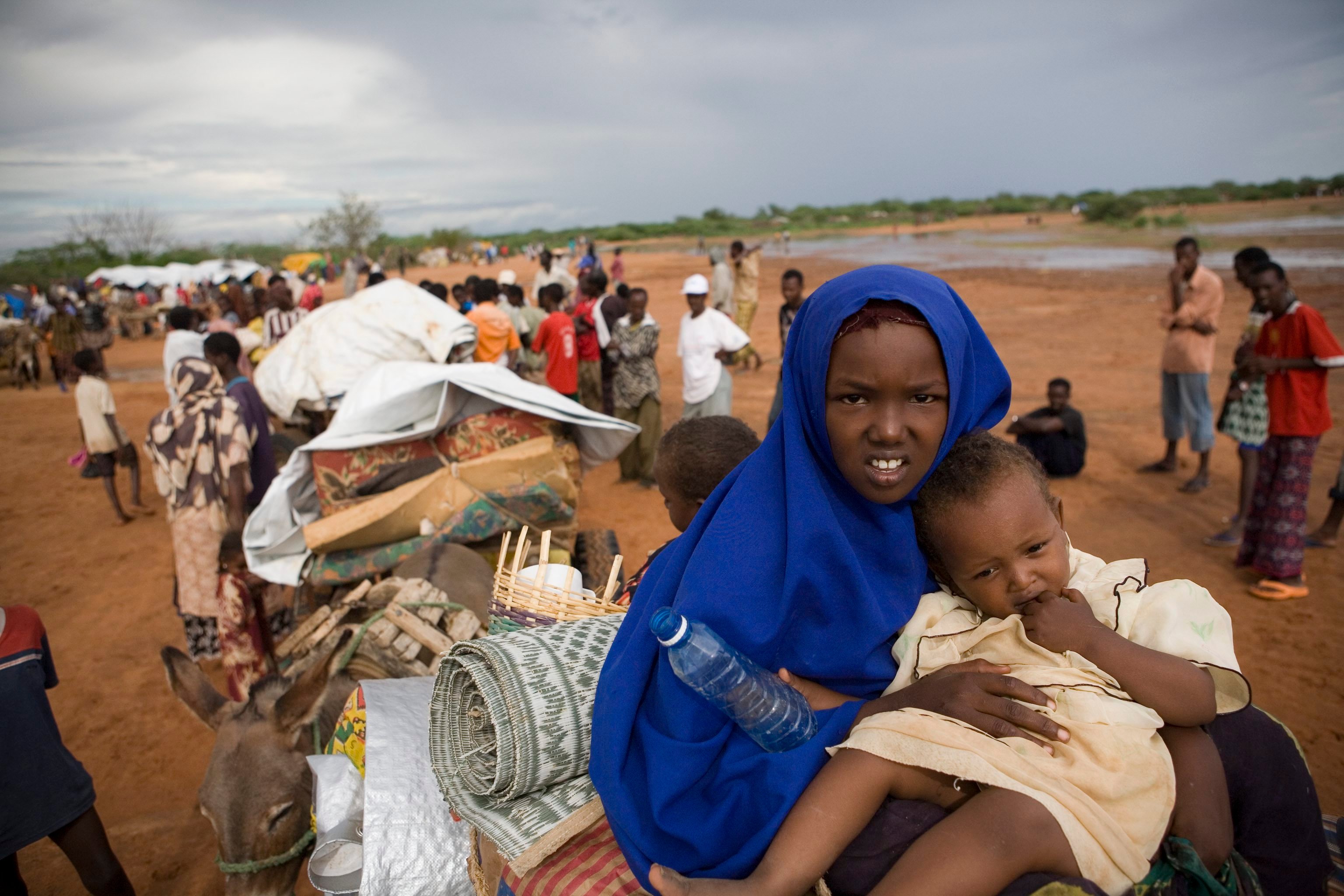Poor weather, conflict further exacerbating situation for civilians in Somalia
Poor weather, conflict further exacerbating situation for civilians in Somalia
Continuing conflict and bad weather in Somalia are further aggravating the already dire humanitarian situation. Our staff in the south-western border town of Dobley tell us that fewer refugees are crossing into Kenya. Rains which have made roads impassable and fear of being caught up in conflict are being cited as the main reasons.
In Dobley itself, which is just 18 kilometres from the border, people are continuing to arrive. They tell our staff that they fled rumored impending military clashes in the area, and threats of forced return by Al Shabaab to their places of origin. Last weekend, six trucks containing almost 180 displaced people from Afgooye district, the majority from the K50 IDP camp, arrived in Dobley after traveling for 27 days on flooded roads. They said that they had been instructed by Al Shabaab to return to their farms but opted instead to travel to Dobley in search of humanitarian help.
In Mogadishu, UNHCR, in conjunction with partner agencies, is finalizing an assessment of the internally displaced population in the Somali capital. The assessment mapped the location of IDP settlements and obtained basic demographic and household size data. GPS coordinates of all settlements in 14 of Mogadishu's 16 districts were recorded (two were not accessible for security reasons) and a survey of 7,000 households was undertaken by over 500 enumerators. The preliminary results reveal that there are almost 300 IDP settlements of varying sizes, with GPS sweeps of two districts yet to be completed. The cumulative Mogadishu IDP population figure will be presented to Transitional Federal Government (TFG) officials in Mogadishu next week before being shared with the humanitarian community.
Meanwhile in Nairobi, a UNHCR-supported report was launched yesterday, looking into civilian harm caused by the military conflict and the means by which it can be addressed. The report was compiled by international NGO CIVIC from over 100 interviews with Somali civilians, humanitarian agencies, the UN and international donors and AMISOM personnel between February and July in Mogadishu, the Dadaab refugee complex, and among Somali diasporas around the world. 'Civilian Harm in Somalia: Creating an Appropriate Response' focuses on assistance for civilians harmed in warfare. There is currently no international legal obligation for parties to conflict to make amends to civilians adversely affected by military operations.
UNHCR stresses the moral imperative of compensating civilians for losses of property, limb or life due to military activities. We also call upon donors to provide the necessary financial support to fund implementation of the recommendations in the report, so that an effective policy on making amends can be established by AMISOM.
Among the recommendations in the 60-page report is the establishment of a mechanism to track, analyze, investigate and respond to all incidents of civilian harm. The report is also calling for all parties to the conflict in Somalia to immediately cease attacks targeting civilians and humanitarian agencies.
For further information on this topic, please contact:
- In Nairobi, Kenya (Somalia office): Andy Needham on mobile +254 733 120 931
- (Regional office): Vivian Tan on mobile +254 735 337 608
- In Geneva: Andrej Mahecic on mobile: +41 79 200 76 17




